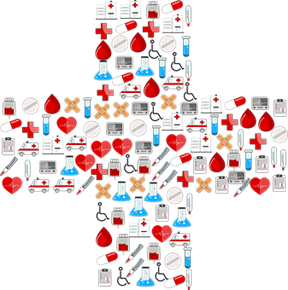Self-Care COPD Program Lowered Hospital Re-admissions
 Self-management of chronic obstructive pulmonary disease (COPD) could significantly reduce the number of hospital readmissions and increase patient quality of life, according to finding of a new study.
Self-management of chronic obstructive pulmonary disease (COPD) could significantly reduce the number of hospital readmissions and increase patient quality of life, according to finding of a new study.
Researchers developed the study at Johns Hopkins Bayview Medical Center, which entailed a three-month BREATHE program combined with transition support and chronic disease self-management. The goal of the study was to determine I if it were possible to improve quality of life and acute care reduction for those suffering from COPD.
COPD encompasses a group of conditions, including emphysema and chronic bronchitis, that causes irreversible lung damage. More than 1 of every 10 seniors have COPD, and 1 of 5 people admitted into the hospital with a COPD exacerbation are re-hospitalized within a month.
According to lead author, Hanan Aboumatar, MD, MPH, associate professor of medicine at the Johns Hopkins University School of Medicine, people with COPD must maintain a “meticulous juggling act: learning about the various medications they must take, how to use multiple inhalers, maintaining the ability to do the activities they enjoy, and recognizing flare-ups early before they get serious enough to warrant a hospital admission.”
In other words, COPD patients must learn extensively about their condition and how to best live with it throughout their daily lives, Aboumatar said. “Unfortunately, patients often report not receiving sufficient information about COPD and how to manage it. Many don’t know how to use their inhalers or how to get portable oxygen devices so they can still leave their home.”
Between March 2015 and May 2016, 240 patients were randomized to receive usual care or intervention care. Usual care patients were assigned a general transition coach who supported the patient for 30 days after discharge, providing guidance with a discharge plan and outpatient services. For intervention care, nurses with specialized training in supporting COPD patients, met with patients during their hospital stay and for three months after discharge.
Hospitalizations, emergency department visits, and the St. George’s Respiratory Questionnaire (SGRQ) quality of life score were monitored for six months after initial hospitalization. For the 203 patients who completed the study, the number of COPD-related acute events was 0.72 for the intervention group and 1.40 in the usual care group.
The SGRQ score for the intervention group decreased by only 1.53 points; however, the score for the usual care group showed a notable rise, at 5.44 points, researchers discovered.
Aboumatar said the COPD patients and caregivers that partnered with their research team to develop the BREATHE program were able to share important information about their needs and what areas healthcare providers needed to focus on. “We are planning to repeat this study in a wider variety of hospitals, including ones in rural settings and those serving patients who have more access to resources,” she added.
The study, “Effect of a Program Combining Transitional Care and Long-term Self-management Support on Outcomes of Hospitalized Patients with COPD," was originally published in JAMA.

